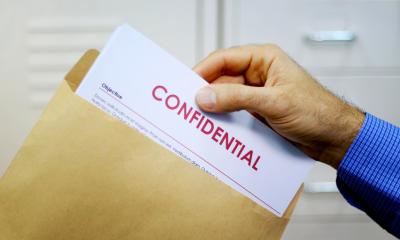
One of the most important things to consider when setting up your new business, whether it’s a retail outlet or a trade service, is health and safety. But don’t worry – it doesn't have to be complex, just make sure you get professional advice if your business does something inherently risky or you are unsure about your responsibilities
Take responsibility for health and safety
Legally you are obliged to decide exactly who will be responsible for health and safety in your business. Many bigger companies delegate this to an external consultant so that they can concentrate on other things. But, in many new businesses the owners usually accept this task themselves. You must ensure that you or your appointed person is competent to take charge of your health and safety.
Write a health and safety policy
As a start up, you are unlikely to need a written health and safety policy (a written policy in only required if you have five or more employees), but it wouldn’t hurt to have a written record of the risks you have identified and how they will be handled. No matter what type of business you run, your health and safety policy should describe how you will:
- prevent accidents and work-related ill health, and control risks arising from work activities;
- provide adequate training for all your employees, ensuring they are competent;
- discuss health and safety conditions with your staff, providing advice and supervision;
- implement emergency procedures, such as emergency evacuation plans in case of fire.
Carry out a risk assessment
Every type of business will present a different set of risks and hazards that could affect its employees, visitors, customers and even those just passing by! For example, a member of the public passing by a window cleaner could be at risk from falling objects if the window cleaner hasn’t properly considered the risk and taken steps to reduce the likelihood of it occurring.
Of course, no one expects you to completely eradicate all risks and hazards. Many of them will be part and parcel of your new business – hazardous tools and electrical equipment are used in every trade and industry, from gardening to hairdressing and construction. But you must be aware of the risks they present and take reasonably practical steps to protect anyone to whom they could present a risk.
Insurance can protect your business should the worst happen - and in some cases is legally required.
Example risk assessments
Visit the Health and Safety Executive (HSE) website to view examples that show the approach HSE expects a small business to take when undertaking a risk assessment. Find examples in the following categories:
- Shops
- Motor vehicles
- Office
- Other (eg pub, village hall, call centre, cold storage and warehousing)
The examples show how other small businesses have approached risk assessment. Use them as a guide, when you write your own risk assessment, to think about:
- some of the hazards in your business
- the steps you need to take to control the risks.
See examples of health and safety risk assessments on the HSE website.
Health and safety training
As a new micro business, you’re unlikely to need to delegate the management of your health and safety to others. But, if you don’t have the required knowledge or experience to handle it – seek training with a professional and reputable organisation. The additional cost may seem unnecessary – but it will ensure that you fulfil your legal obligations and help keep you, your employees and your customers safe.
This post was written on behalf of Health & Safety Training Ltd



